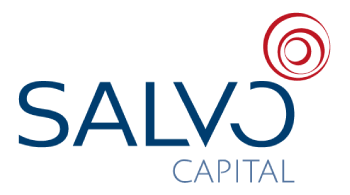Measuring Quality
Quality:
“The standard or nature of something as measured against other things of a similar kind; the degree of excellence possessed by a thing.”
– Oxford English Dictionary definition
‘Quality investing’ has become a popular investment style and a particularly strong selling point of late.
As the quote above suggests, measuring quality is, by its nature, relative. We are of the firm opinion that the market is currently offering investors the opportunity to take advantage of mispricing that emanates from how quality is perceived.
Clients will be well aware that at PSG Asset Management, as a result of their 3M (Moat, Management and Margin of safety) approach, like to invest in mispriced quality assets. They currently believe that they can identify many opportunities to buy high-quality businesses that are trading well below their estimate of intrinsic values on global equity markets. This differs substantially from the JSE, where we think most better-quality large cap stocks are overvalued, particularly the rand hedge industrials.
Many people view defensive companies to be low-risk investments
Due to the nature of their stable, relatively predictable earnings streams, many people think that defensive quality companies are always low-risk investments. We would beg to differ. Many of these types of companies are currently trading at valuations well in excess of normalised levels, with likely expected future returns to be relatively poor. While you may sleep well owning a staples, home and personal care or beverage company, valuations have been driven to levels that may well turn out to be disruptive to your eight hours of downtime.
While the price/earnings (P/E) ratio is just one measure of value, the average forward P/E to December 2016 for typical quality defensive stocks such as Nestle, Unilever, Reckitt Benckiser, Kraft Heinz and Anheuser-Busch Inbev is 25.1 times. These companies are not cheap.
Many people view cyclical companies to be poor investments
On the other hand, we think a great opportunity exists due to people perceiving many cyclical companies – companies with less predictable earnings streams or those with lower near-term growth prospects – to be poor investments. Trawling the globe for opportunities, we find a great number of stocks with excellent underlying qualities (e.g. strong market shares, high returns on capital, good long-term growth prospects, aligned management teams) that are not being viewed and priced as such.
We have been allocating to mispriced global quality
In our global portfolios we have been able to allocate capital to a number of companies that fit the bill. In recent months we have been afforded the opportunity to add to our positions in, amongst others:
- Brookfield Asset Management, an alternative asset manager that has been around since 1899
- Berkshire Hathaway, a great company trading at a well below average valuation
- Softbank of Japan, Alibaba’s largest shareholder available at a substantial discount to its net asset value
- Cisco, the global leader in networking, which is transforming its business to be more subscription, services and software led
- Colfax, an industrial platforms company with large exposures to emerging markets
- Union Pacific, operator of the largest railroad network in the United States
- Certain global banks, which are still a standout opportunity
We have also found new investments and added Qualcomm to our portfolios, the owner of standard essential patents for mobile communications.
Consider long-term growth prospects and be aware of stretched valuations
The basket of stocks mentioned above is available to investors at an average forward P/E to December 2016 of 13.6, and these companies are likely to compound at very attractive rates over time. Longer-term investors in our funds should remain encouraged by the opportunity this perception issue presents, as it allows us to construct a portfolio of excellent businesses which, according to our analysis, are trading at 75 cents in the dollar – a gap we expect to close in the future.
We would caution investors to be aware of the multiples that some of the so-called ‘defensive’ companies are trading at (globally and domestically). Valuations in some of these companies are stretched. They appear to us to be much riskier investment propositions than some other companies which, while they appear to be inferior due to their more cyclical earnings nature, are being acquired at an attractive discount to their intrinsic values, and offer investors the prospects of good long-term returns.
Philipp Wörz is the fund manager of the PSG Global Equity Sub-Fund and PSG Global Flexible Sub-Fund.
The PSG Angle is an electronic newsletter of PSG Asset Management.




